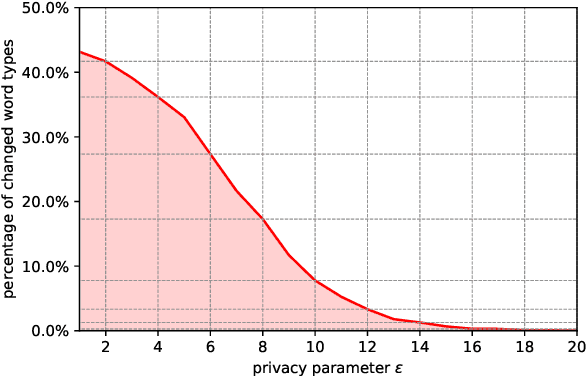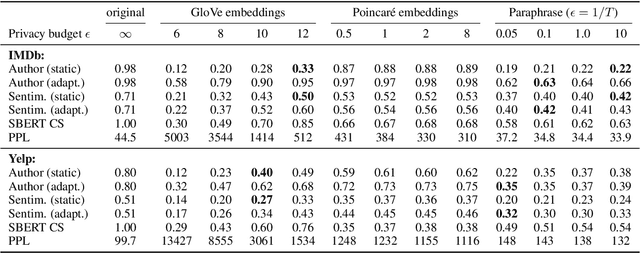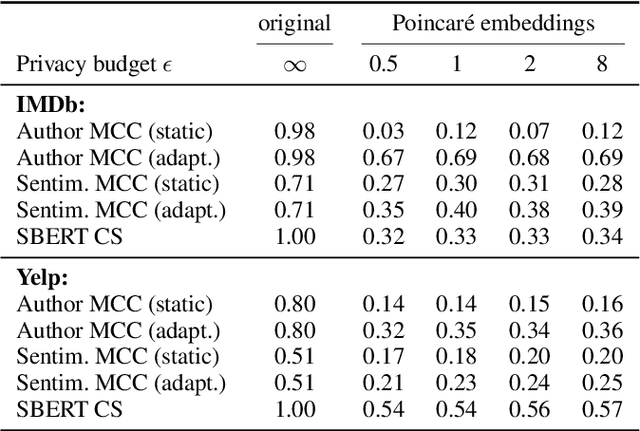The Limits of Word Level Differential Privacy
Paper and Code
May 02, 2022


As the issues of privacy and trust are receiving increasing attention within the research community, various attempts have been made to anonymize textual data. A significant subset of these approaches incorporate differentially private mechanisms to perturb word embeddings, thus replacing individual words in a sentence. While these methods represent very important contributions, have various advantages over other techniques and do show anonymization capabilities, they have several shortcomings. In this paper, we investigate these weaknesses and demonstrate significant mathematical constraints diminishing the theoretical privacy guarantee as well as major practical shortcomings with regard to the protection against deanonymization attacks, the preservation of content of the original sentences as well as the quality of the language output. Finally, we propose a new method for text anonymization based on transformer based language models fine-tuned for paraphrasing that circumvents most of the identified weaknesses and also offers a formal privacy guarantee. We evaluate the performance of our method via thorough experimentation and demonstrate superior performance over the discussed mechanisms.
 Add to Chrome
Add to Chrome Add to Firefox
Add to Firefox Add to Edge
Add to Edge